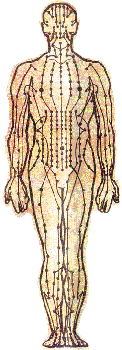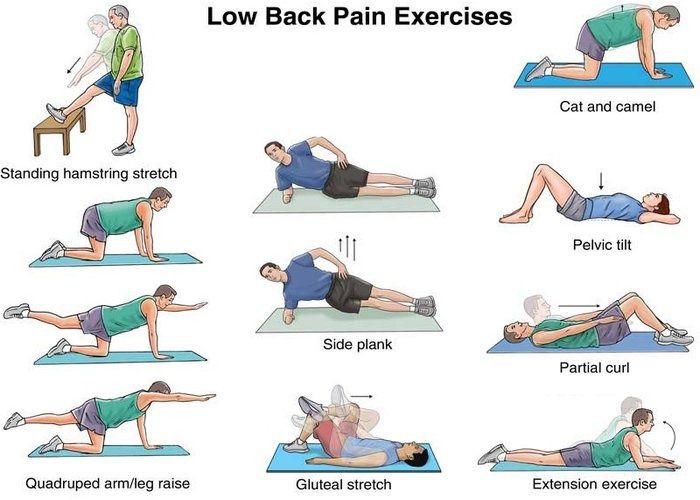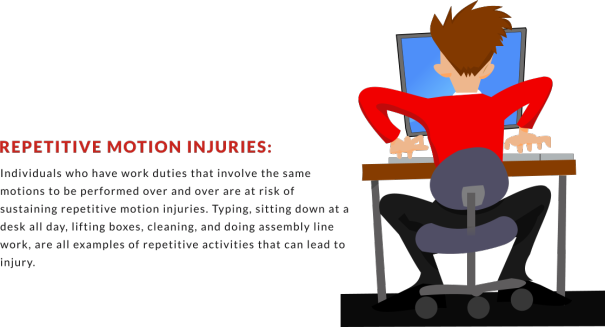Acupuncture and the Musculoskeletal System
Musculoskeletal pain: pain that affects the muscles, ligaments and tendons, and bones.
Muscle tissue can be damaged with the wear and tear of daily activities. Trauma to an area (jerking movements, auto accidents, falls, fractures, sprains, dislocations, and direct blows to the muscle) also can cause musculoskeletal pain. Other causes of pain include postural strain, repetitive movements, overuse, and prolonged immobilization.
The musculoskeletal system consists of connective tissues including joints, ligaments, and tendons. Problems with the musculoskeletal system can result in inflammation and pain and, ultimately, reduce the body’s overall health. Increasingly, people are looking for more natural approaches to help relieve painful musculoskeletal conditions instead of relying on medications.
Acupuncture is a good therapy choice because it has no side effects and can be helpful for all types of pain, regardless of what is causing the pain or where the pain is located. Some studies have shown the pain relief provided by acupuncture can last for months.
What Are the Symptoms of Musculoskeletal Pain?
People with musculoskeletal pain sometimes complain that their entire bodies ache. Their muscles may feel like they have been pulled or overworked. Sometimes, the muscles twitch or burn. Symptoms vary from person to person, but the common symptoms are:
- Pain
- Fatigue
- Sleep Disturbances

Low Back Pain
The most common disorder in the musculoskeletal system is back pain. More than 8 out of 10 adults in the United States suffer from back problems at some point in their lives.
Two studies recently published in the archives of internal medicine, showed that acupuncture provided relief and lasting benefits to nearly twice as many lower back pain patients as drugs and exercise. While the second study showed that acupuncture provided definite pain relief that lasted for three weeks after the end of the acupuncture sessions.


Low Back Pain Exercises
 Arthritis
Arthritis
acupuncture has been reported to be extremely effective in treating the signs and symptoms of arthritis; mainly pain and stiffness. In the traditional Chinese medicine theory, acupuncture can clear the blockage of the vital energy (Qi) in the channels (meridians) which is caused by wind, cold, damp or damp-heat. There are 3 common types of arthritis:
- metabolic arthritis (Gout)
- auto-immune arthritis (Rheumatoid arthritis)
- wear & tear arthritis (Osteoarthritis)

Repetitive Stress Injuries (RSI)
Repetitive stress injuries (RSI) are the second most common problem-related injuries after back pain. It affects not only the patients themselves but the economy as they are attributed to the highest number of days lost among all work-related injuries. The clinical picture of this syndrome consists of, in addition to the constant pain, tightness, stiffness, tingling, numbness, coldness and loss of strength. Within the context of Chinese Medicine, the main causes of RSI are related to the disruption energy-flow (Qi) and Blood (Xue) within the affected region and associated with cold, dampness or wind penetrating the muscles and ligaments.
Acupuncture therapy (with certain exercises) is one of the best effective treatments for repetitive stress injuries sparing the need for surgery or to use the conventional medication of pain killers and anti-inflammatory drugs such  as steroids.
as steroids.
In order to get a good prognosis and to prevent any relapses of RSI, the patient should be advised to change the life styles as in the following points:
- Try to avoid repetitive tasks in any work or job by doing alternation between tasks that use different group of muscles where possible.
- Minimize pressure when you use more force than needed to do certain tasks which involve the hands and that will lead to decrease pressure and less irritation.
- Maintain a good posture in order to avoid shortening neck and shoulder muscles and compressing nerves in your neck, which can affect your wrists, hands, and fingers. With more relaxation of both shoulder and neck, the more flexibility of the head to float upwards without strain.

A healthy musculoskeletal system is important for everyone as the system is continuously tested by stress and exercise.
Incorporate these nutrients into your diet to improve your musculoskeletal health
- VITAMIN C: Essential for the formation of collagen, Vitamin C is a major component of all connective tissues and essential to the musculoskeletal system. Correct levels of vitamin C help to combat stress, build the immune system, and reduce swelling. Vitamin C is found in a variety of fresh fruits and vegetables including citrus fruits, green vegetables, tomatoes and berries.
- VITAMIN D: Vitamin D aids in the absorption of calcium, helping to form and maintain a strong musculoskeletal system. Found in fish, eggs, fortified milk, and cod liver oil, vitamin D can also be synthesized by the skin when exposed to ultraviolet B (UVB) rays from the sun. As little as 10 minutes is thought to be enough to prevent deficiencies.
- ESSENTIAL FATTY ACIDS: The essential fatty acids Omega-3, Omega-6 and Omega-9 directly affect cellular, cognitive and kidney function. Their anti-inflammatory effect on the body helps keep joints healthy, reduce pain and swelling. They have also been found to be beneficial in dealing with depression, stress, arthritis and menopause.
Foods rich in Omega-3 fatty acids include: salmon, sardines, tuna and other cold water fish; nuts and seeds, notably flax seeds, hemp seeds and walnuts; and winter squash. - Water: The average adult is comprised of 50 to 65 percent water. Not getting enough water can affect the ability of the body’s cells to function properly.
Water increases the circulation of oxygen and nutrients throughout the body and helps eliminate waste. Keeping your body well-hydrated can help your musculoskeletal system function better.





